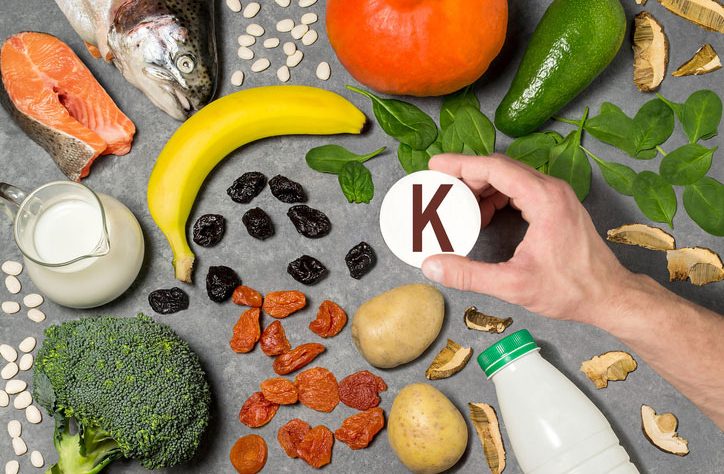Potassium is very important for muscle strength, the work of the cardiovascular and nervous systems. The macroelement affects a considerable number of biochemical processes in the body, so its deficiency can seriously affect the state of health. It is important to be able to distinguish the main symptoms of mineral deficiency in the body, which will allow you to notice the problem in a timely manner and choose the optimal way to solve it.
7 main symptoms of potassium deficiency in the body
- Long-term lack of potassium in the body can lead to a feeling of constant fatigue. So if you feel exhausted even with enough sleep and rest, you should see a doctor for a checkup.
- Increased pressure can also be an alarm signal. Potassium contributes to the relaxation of blood vessels, so its deficiency can cause vascular spasms, which in the future leads to drops in blood pressure.
- Potassium plays an important role in smooth muscle contraction. Therefore, when its level decreases in the body, muscle spasms, as well as pain or cramps, may occur.
- Since the macroelement has a direct effect on the work of the heart, various problems with this organ may indicate a deficiency of potassium in the body. You should be especially careful if you quite often notice a decrease in heart rate without any apparent reason.
- A sharp decrease in the level of potassium in the body can slow down the pulse, which in turn can cause dizziness or even loss of consciousness. In such cases, it is recommended to immediately consult a doctor for professional help.
- Potassium is responsible for the health of the nervous system. Therefore, a feeling of tingling or numbness in the limbs can be an alarming symptom of a lack of potassium in the body. Problems with the digestive system can also indicate mineral deficiency. In particular, we may be talking about stomach cramps, a feeling of bloating, and constipation.
Balanced diet for potassium deficiency
In order to replenish the balance of potassium in the body, it is necessary to consume a sufficient amount of products that contain this macroelement. For example, for a healthy snack, you should eat dried fruits (in general, 100 g contains up to 70% of the daily mineral requirement). First of all, it is worth paying attention to dried apricots, prunes and raisins. In addition, it is recommended to use nuts, as they also contain potassium. In particular, we are talking about walnuts, almonds, peanuts.
Quite high potassium content in beans. If you consume about 200 g of legumes per day, then you can provide approximately half of the daily potassium requirement in this way. Especially since beans are also a protein product, which is twice as useful for the human body.
An excellent dietary product is seaweed. Its composition contains a lot of potassium, iodine, as well as other minerals and vitamins. It has a positive effect on the digestive system, allows you to remove toxins, and is also an excellent preventive measure for the risk of thyroid cancer.
Quite high content of potassium is present in greens, in particular in sorrel and spinach. You can find a useful mineral in the composition of mushrooms: both fresh and dried.
Avocado is a valuable source of vitamins and minerals, including potassium. It contains the right fats, which has a great effect on the condition of the skin, and also allows you to restore the functionality of the heart muscles. Bananas and apricots are recommended to prevent potassium deficiency in the body. Potatoes also contain the mineral: one medium-sized vegetable can provide 25% of the daily requirement. It is also worth paying attention to seafood, because they contain potassium.
Potassium food supplements — an additional source of minerals
If you cannot 100% customize your daily diet with the help of healthy products containing the macroelement, you should pay attention to special nutritional supplements. Potassium in pills will make up for the deficiency in the body. However, before taking any food supplements, you should first consult with your doctor.
The correct selection of a mineral supplement will allow:
- improve heart function;
- support kidney health;
- increase your energy level;
- support the health of blood vessels;
- improve work nervous system.
General recommendations for combating potassium deficiency in the body
In addition to improving nutrition, as well as taking vitamins and minerals, it is recommended to increase the daily amount of water drunk. Even an increase of 10% from the consumption norm will help the body to fight against macronutrient deficiency little by little.
It is also worth reducing the amount of salty dishes, as well as giving up excessive consumption of coffee and tea. Specialists also recommend limiting the use of alcohol, as it contributes to the rapid loss of potassium. In general, with any complaints about health problems, you should first consult a doctor. Only a professional look at the state of affairs, as well as additional clinical examinations, will allow 100% detection of problems in the body and selection of optimal vitamins for maintaining health.


